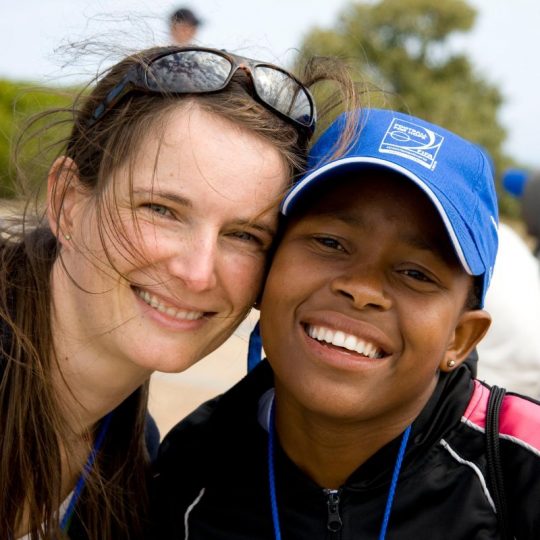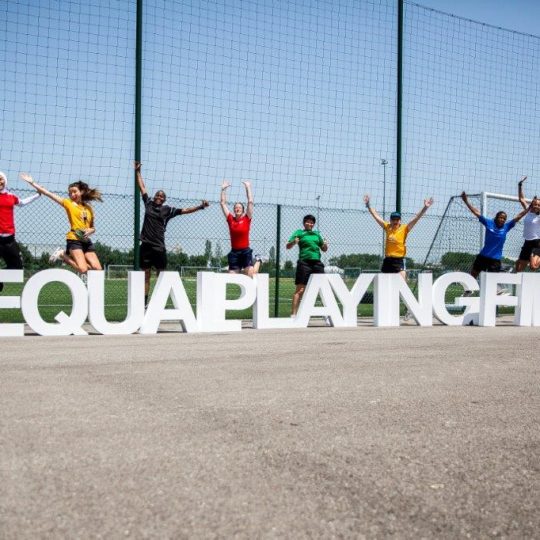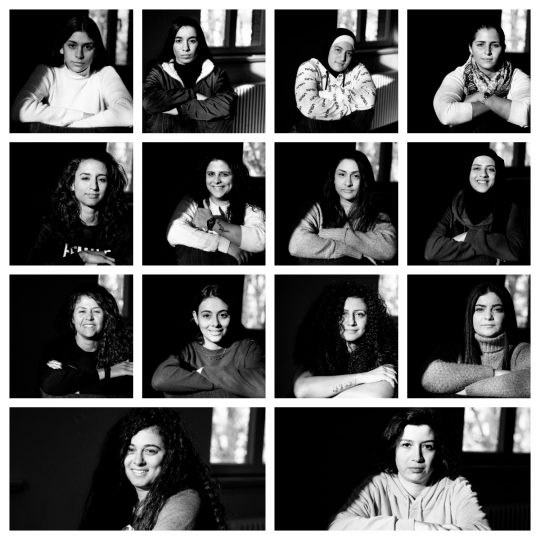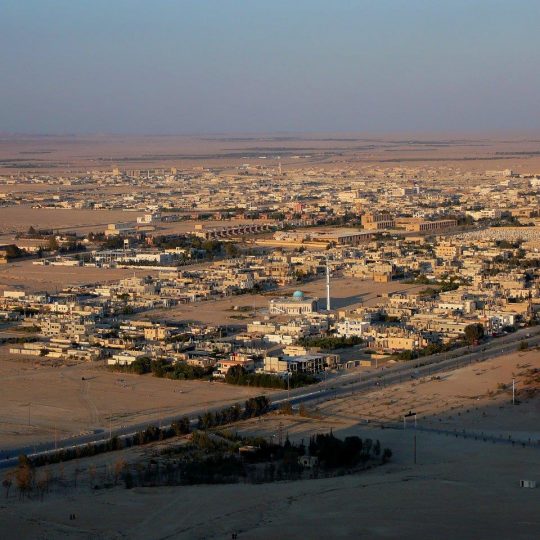I love soccer. I love taking pictures. I always have. Especially from people. And then there was this life-changing experience in 2009.
About 12 years ago I met up with an friend in Hamburg. At that time he worked for an NGO called streetfootballworld, which use football as a catalyst to tackle social change: children’s rights , social integration, environmental protection, health and peaceful coexistence. They create a network to identify, connect and empower girls and boys across the world. My friend – who new that I love photography – asked me if I would join one of streetfootballworlds projects and capture the Football for Hope Festival in Cape Town end of 2009. This event featured a football tournament where 8 teams battled in a 5-a-side round robin competition. During the competition there will be no referees and the teams will negotiate their own rules to promote communication, understanding and respect.
A few weeks later, my plane touched down at Cape Town International airport. It was December, summer in the Cape and almost 30 degrees Celsius. I was rather nervous. I had been to South Africa before, back in 1996, but I was sure that both I and the country had changed since then. Besides my job as photographer I was supposed to act as supervisor for around 70 young people between the ages of 15 and 18. Our first meeting is somewhat restrained. Greetings are cautious, but no different from what I’m used to in Germany. My bulky camera and equipment make me feel rather out of place. The tournament is due to begin on the third day of our visit. So we’ve got 2 days to get to know each other. The program includes joined training sessions, photo workshops and day trips to the surroundings. The idea is for these girls and boys to get to know each other before they face each other on the pitch.
There was this one day that we took an excursion to the Cape of Good Hope. Although there are not many pictures of me in front of the camera, one of the girls participating told me that she wanted to take a picture with me and we did. I had joked around with her and encouraged her, along with all the others to take their lives in their own hands and make the very best of their potential. The same evening we’ve gathered at the school. After an evening meal, some of these teenagers were invited to talk about their home countries and their lives. A young poet speaks – in Xhosa – about both the beauty and the problems of his home nation. The stories sound shocking to European ears, but but many of the participants are visibly affected by what they hear, too. The speakers frequently talk about losing their parents at an early age, violence – both physical and sexual – of drugs, crime and HIV. And suddenly the girls stood up – the one who wanted to take a picture with me. She said, “I am here because Grassroot Soccer saved my life. I am from an abusive family, I left home at an early age, I was raped, I have Aids. I actually was at a point in my life where I did not want to live anymore. But when I got to know this organization, I realized that there are opportunities, there is hope and someone who is looking out for me. I know that I won’t have a long life, but I do want to use the time that I do have left in the best possible way. I want to play football, and I want to share my passion and experiences with others.” Emotions spill over, tears flow and I knew that football can play a bigger role in this world. Football is the largest social phenomenon in the world, with such reach. It simple binds people together and creates a common language they can all speak.
In this moment I knew that I wanted to help to share these stories with larger audiences. I want to give these girls and women a face and a voice.






Sorry, the comment form is closed at this time.